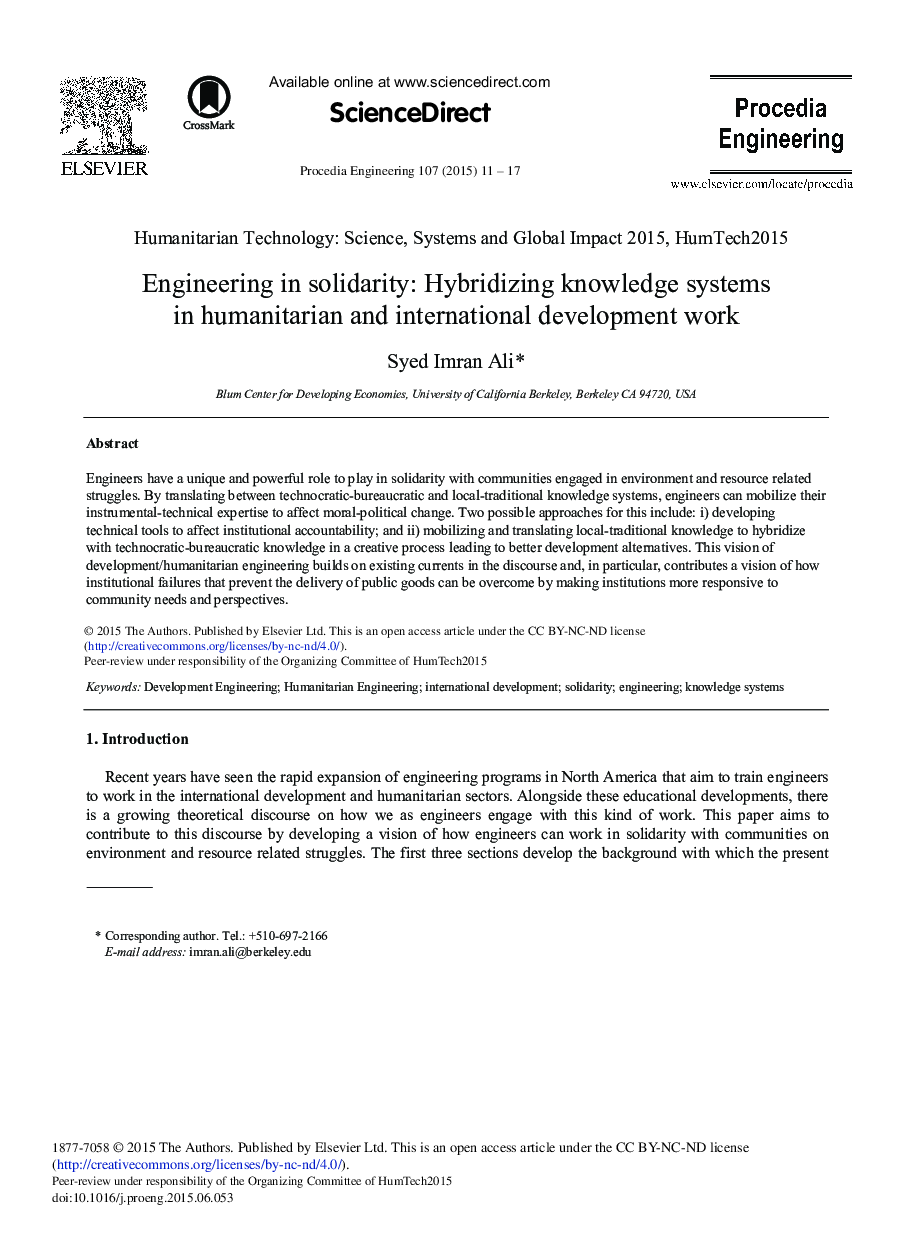| Article ID | Journal | Published Year | Pages | File Type |
|---|---|---|---|---|
| 856700 | Procedia Engineering | 2015 | 7 Pages |
Engineers have a unique and powerful role to play in solidarity with communities engaged in environment and resource related struggles. By translating between technocratic-bureaucratic and local-traditional knowledge systems, engineers can mobilize their instrumental-technical expertise to affect moral-political change. Two possible approaches for this include: i) developing technical tools to affect institutional accountability; and ii) mobilizing and translating local-traditional knowledge to hybridize with technocratic-bureaucratic knowledge in a creative process leading to better development alternatives. This vision of development/humanitarian engineering builds on existing currents in the discourse and, in particular, contributes a vision of how institutional failures that prevent the delivery of public goods can be overcome by making institutions more responsive to community needs and perspectives.
